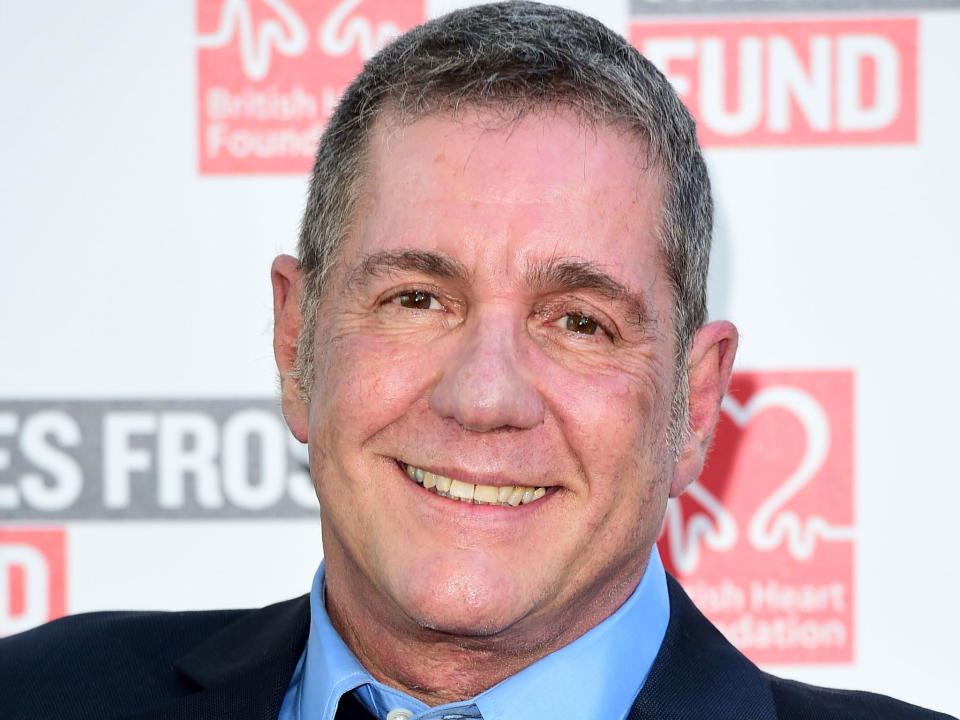Dale Winton wasn't perfect – but his visibility will always be celebrated by the LGBT+ community
In the hours since Dale Winton’s death, emotional tributes from celebrity friends have flooded social media. Many have been deeply personal, with the likes of Davina McCall and Graham Norton praising his quick wit, kind soul and generous spirit. Others made reference to his hilarious show Supermarket Sweep, cracking affectionate jokes and celebrating his comedic legacy.
But, for many of us, his success and unprecedented visibility were more symbolic. It’s crucial to remember that Winton, as well as being well-respected, was also unashamedly camp in the midst of an era which was historically hostile towards LGBT+ people.
Contextually, his television debut came in 1986 when he was chosen for a presenting role on BBC show Pet Watch. Just two years later, Margaret Thatcher introduced the notorious anti-gay bill Section 28, which effectively led to an anti-gay crackdown in education. This legislation came just years after an Aids epidemic – which, due to a lack of knowledge and mainstream media’s willingness to engage in fearmongering, was branded a “gay plague” – devastated queer communities worldwide, creating a climate of fear, stigma and undeniable homophobia.
Meanwhile, Winton was busy climbing the ranks of the showbiz ladder. He parlayed his early TV appearances into a lengthy career which saw him work with stations including Channel 4, ITV and the Lifestyle Channel. His biggest break came in 1993, when he was given his own zany game show entitled Supermarket Sweep. Light-hearted, fast-paced and buoyed by Winton’s cheeky jokes, the surreal show – which came complete with inflatable bananas – became a commercial success which lasted for seven years.
Rumours inevitably swirled around Winton’s sexuality, although he never gave an official statement. It wasn’t until 2002 that he officially “came out” in autobiography My Story, but by that point he had already established a reputation as a gay icon.
Just this morning, long-time friend and radio host Steve Allen opened his show with an emotional tribute during which he detailed homophobic abuse levelled at Winton when they were out together in Sheffield. Upon being called a “poof” by a stranger, the presenter walked up to him and responded: “Yes I am, and I’m laughing all the way to the bank!”
But things weren’t always so easy for Winton, who openly discussed his battles with depression and the years it took for him to come to terms with his sexuality. It’s no secret that “coming out” can still be a difficult, troubling process – Matthew Todd covered the disproportionate rates of mental health problems within the LGBT+ community in his excellent book Straight Jacket.
Despite being openly camp, Winton says he was never a “banner-waving gay” and only came out when the time felt right, although he also admits that not confiding in his own mother was one of his deepest regrets. In 2008, he recalled that she overheard a conversation between Winton and his then-boyfriend, after which she said: “I never want you to feel there’s something you can’t tell me, and I will never judge or discriminate.” Looking back, he states: “That was the point I should have gone: ‘Mum, I’ll tell you I’m gay’.”
But the fact is that things aren’t that easy. LGBT+ people still risk being kicked out of their homes, abused or threatened for coming out; even for the most privileged among us, it can be difficult to truly accept. As a young queer kid growing up in Yorkshire, this fear strikes a chord. Despite coming from a tight-knit, fairly liberal family, I carried fear around for years and often internalised the abuse levelled at me on the streets. Effeminacy undeniably increases the frequency of these attacks.
There are still plenty of us who feel the need to conform, to shrink ourselves in order to minimise our risk of abuse. I’ve been guilty of internalised homophobia on numerous occasions. The prevalence of “straight-acting” gays highlights the ongoing stigmatisation of campness. Winton even attracted critique of his own when he proudly announced himself as a Trump supporter, describing the leader as “fearless”.
This support of a president whose regime has been notoriously cruel to LGBT+ people has been seen as a black mark of sorts on Winton’s track record, but this alone shouldn’t be used to diminish the importance of his visibility. Seeing family and friends, few of whom had ever seemed openly gay-friendly, laugh and celebrate Winton and his unashamed campness helped me understand that effeminacy is nothing to be ashamed of. Despite his own struggles with his sexuality, Winton’s success sent the crucial message that not all men – especially gay men – need to conform to masculinity in order to thrive.

 Yahoo News
Yahoo News 

